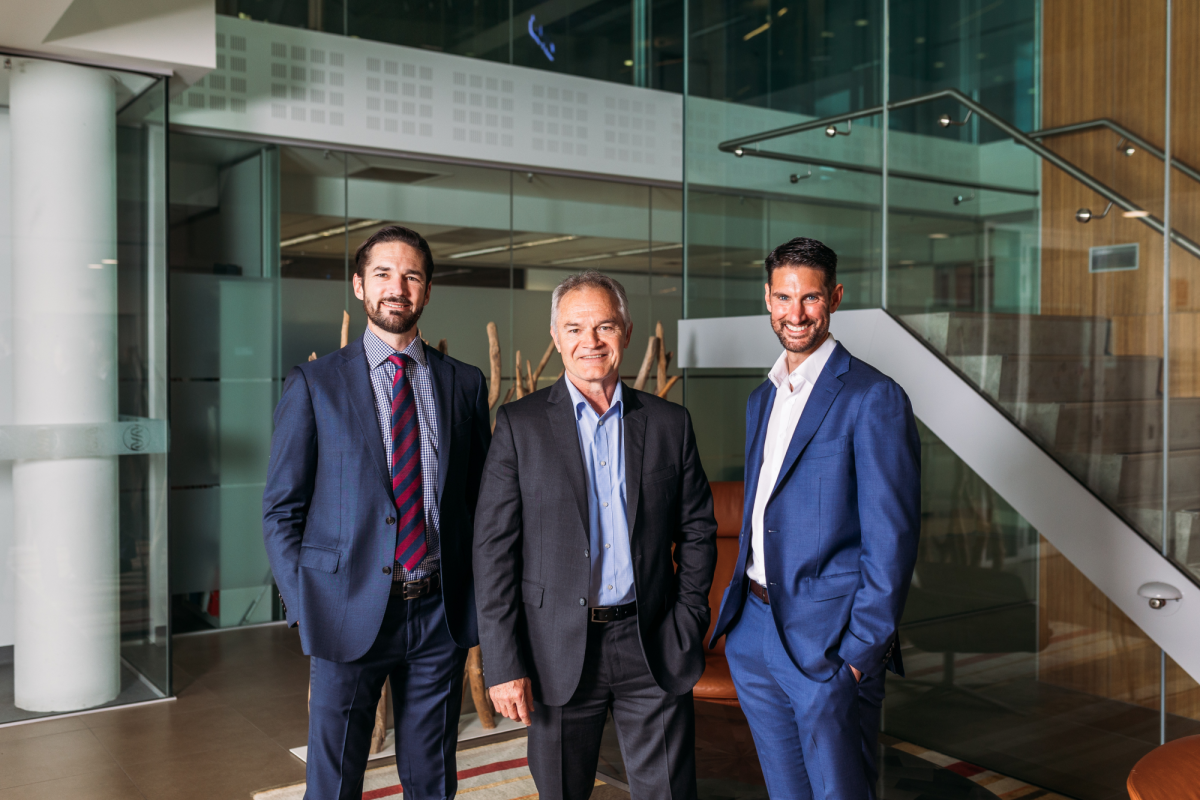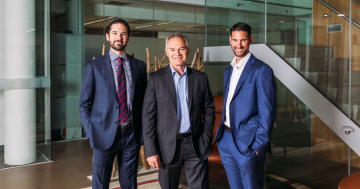
RSM’s senior manager, Pete Duncan, partners Tim Ryan, and director Chris Perry are from the Government and Public Sector Consulting team in Canberra. Photo: RSM.
Solving problems you’re aware of is hard enough, but what about the problems you can’t see?
It might sound a little strange, but the Director of RSM’s Government and Public Sector Consulting team, Chris Perry, says it’s surprisingly common for organisations to not fully understand what’s actually ailing them – and it can cost them big time.
“All too often, we see buyers approaching the market asking for something that will only partially solve their problem, or worse still, something they don’t even need. Why? Because they don’t yet know what the problem actually is,” he says.
“Clients often recognise they have an issue, they see the symptoms of it and write up a scope to address the things they see. But treating the visible manifestations of a problem isn’t a lasting solution.”
Chris likens it to taking Panadol to treat a sore arm when an X-ray would show it’s actually broken and needs a cast.
In order to maximise the value you get from consultants, Chris says clients must first ask the right questions to identify the root cause and articulate what they truly need from their service provider.
This is especially critical for government organisations and departments that must be beyond reproach in probity and meeting the value for money test in all procurements.
The trouble is, you don’t always know what you don’t know.
“Often clients are time-poor, dealing with multiple competing priorities and can be too close to the problem to see what’s really going on,” he says.
One solution is a “rapid assessment” – an unbiased, targeted and highly tailorable diagnostic tool that Chris says invariably yields better long-term results.
“We come in for a short, sharp period and for a small upfront investment, run a diagnostic to understand what’s really happening. Through objective eyes, we can identify the key risk areas, gaps and opportunities and come up with a roadmap to the outcome you want,” Chris says.
“It could be fixing something that’s going wrong, improving business performance or the implementation of a new initiative when you’re not quite sure how to go about it or what resources would need to be allocated.”
Armed with an understanding of the issues and opportunities, possible solutions, a timeframe and indicative costs for either carrying out the work internally or engaging eternal support, clients can avoid costly missteps.
While some clients might be reluctant to invest in an assessment before the work even begins, Chris says it could end up saving them a lot of time and money – especially staff hours.
“In the worst-case scenario, a provider comes in and does precisely what they’re asked, and the client is left with something next to useless,” Chris says.
“In a better scenario, which still isn’t great, the provider comes in and identifies early that what they’ve been asked to do is probably not really what the client needs. Then there’s an exercise in re-scoping, and that potentially leads to delays and a budget blowout, but at least, in the end, the client has the right outcome.”
In Chris’s experience, it happens more often than most people would think.
“I was once engaged to help an organisation review and revise their processes for assessing applications from organisations seeking accreditation. Based on the initial request, it was a pretty straightforward engagement, but during discovery, we found out that what prompted the project was a massive backlog of applications that needed to be assessed,” he says.
“When we discovered this, we dug deeper, and it turned out there were multiple issues that needed to be addressed that weren’t part of the original scope.
“Ultimately, we came up with a multi-faceted solution because a new process alone would not have helped.”
If you need to deliver an outcome but aren’t confident you have all the facts or understand the best way forward, it might be time to call in the pros.
For more information, contact RSM’s Government and Public Sector Consulting team.





















